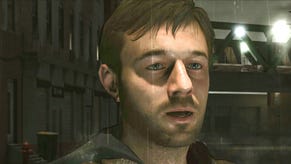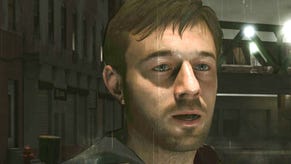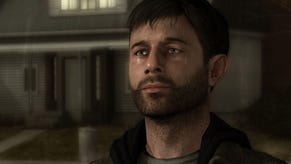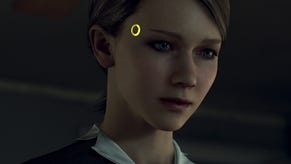Heavy Rain
A preview without a game.
There's no rain during our trip to Paris to see Heavy Rain, which is bad news for the photographer travelling in our group, who might have done well out of that. Then again, there's no Heavy Rain on our trip to Paris to see Heavy Rain either. Nor, it turns out, was there any sign of it at Leipzig's Games Convention in August, despite its top billing at Sony's conference and director David Cage's press briefings. When we sit down with Cage three months later to ask whether anything we've seen so far - characters, locations, scenarios - is actually in the game you'll be invited to buy in the second half of 2009, he pauses for a second. "No."
Instead we've been invited under the Channel and through the terrifying Parisian traffic to witness a speech and a slideshow. Cage - the diminutive, loquacious and occasionally poetic head of development studio Quantic Dream - wants to tell us about his ambition, his methods, and his philosophy. And it's important to emphasise his role. He wrote the 2,000-page, non-linear script that prescribes not only the game's characters, locations and scenarios, but also its gameplay mechanics, over a period of 15 months, preferring the help of Hollywood script-doctors to established game developers. He directed every one of the 60 scenes that make up the game, casting and commanding more than 70 actors and stuntmen to perfect the look. His co-CEO - the charming Guillaume de Fondaumière - treats him reverentially, greeting the press and helping us to pass the time between interview slots, but only Cage speaks about the game.
We're up against pure ego, then, in a building where everything is open plan except for a single private office (guess who), and yet we're spellbound. We can't tell you how Heavy Rain looks, sounds or plays in any great depth, but we can tell you it's interesting. As with Fahrenheit (Indigo Prophecy in the US), Cage respectfully declines the "pattern-based" rhythm of modern action-adventures, preferring "a complex story told through contextual actions and realistic visuals", which reaches beyond the emotional palette - as he perceives it - of frustration, anger and anxiety that underscores the majority of contemporary videogames. It's easy to trigger fear and frustration, he argues, "but to make you feel social emotions like empathy is more difficult".
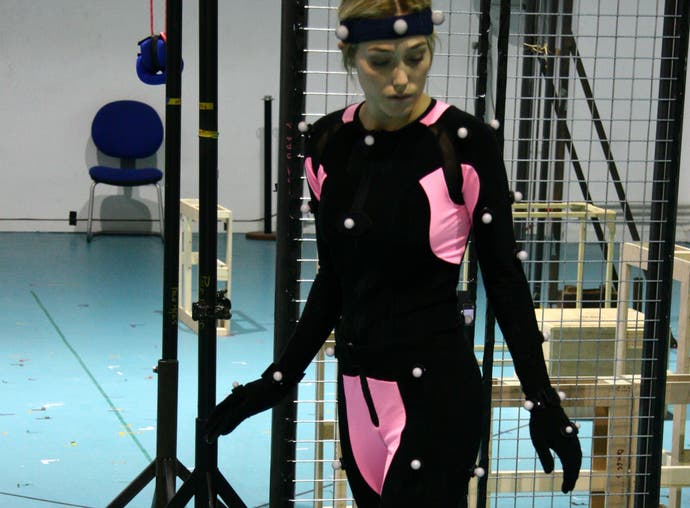
Ironically, contextualising these goals within the framework of what will go on sale next year is almost impossible. Leipzig's taxidermist scenario - where a woman enters a house, discovers stuffed dead people, is surprised by the return of the house owner, and has to escape - gave us an understanding of one or two core concepts, like the 'impress' system, where a character hiding quickly in a cupboard is held in place by an awkward combination of buttons designed to bridge the emotional divide between sofa and peril. We also discovered that the Sixaxis motion sensor would be used to throw, kick and generally "give an impulsion", as Cage puts it, and that your character would move when you held a trigger and follow head movements directed by the player. But Cage refuses to elaborate during our visit, except to say that "there is some kind of language regarding the interface and how we deal with things".
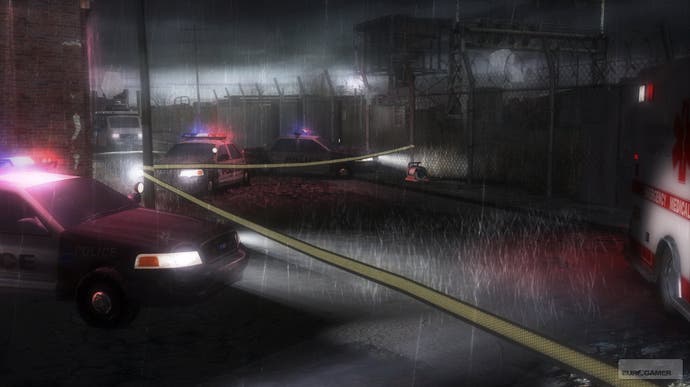
We ask about the way in which Cage goes about weaving story and gameplay together, speculating that just as developers who allow gameplay to dictate the scenario are often forced to concede to cut-scenes - something Cage promises only to do as a last resort - he may be forced to concede to repetition if he's to map his game to the story he wants to tell. "I'm not starting with the story and trying to fit gameplay in," he insists, becoming animated, "because that would fail the same way. What I try to do is to think about the story and the gameplay together. At the moment that I have an idea for a scene, I try to think about the potential for gameplay in this scene. Or when I think I think about a nice gameplay mechanic, what's the potential for the story? I wrote many scenes that were deleted because they had a good idea for gameplay but not for story, or a good idea for story but not for gameplay. I need to have good ideas for both in every single scene."




